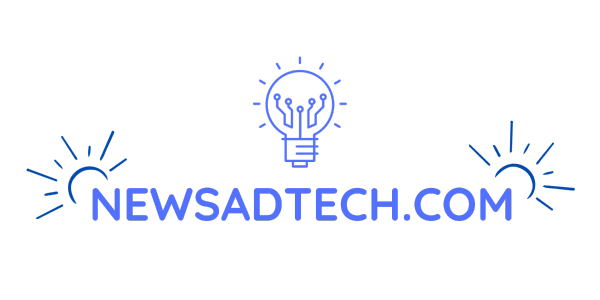The Impact of Data Science Institutes on Transportation Logistics in Bangalore

Introduction
Bangalore, often referred to as the “Silicon Valley of India,” is not only a hub for technology and IT but also a bustling metropolis with intricate transportation logistics. The city’s rapid urbanization and population growth have posed significant challenges to its transportation infrastructure. In recent years, data science institutes in Bangalore have played a pivotal role in transforming transportation logistics. This article delves into the profound impact of data science institutes on transportation logistics in Bangalore, highlighting how data-driven insights and innovations are shaping the city’s mobility landscape.
The Transportation Landscape in Bangalore
Bangalore’s transportation system is a complex web of roads, public transit, and private vehicles. With a population of over 12 million and a significant IT workforce, the city faces several transportation challenges:
Traffic Congestion: Bangalore is notorious for its traffic jams, which not only waste time but also impact the environment and economy.
Last-Mile Connectivity: Ensuring smooth and efficient connectivity for commuters from their homes to workplaces remains a challenge.
Public Transit: The city’s public transit system, including buses and the metro, faces capacity constraints and operational challenges.
Safety Concerns: Ensuring the safety of commuters, particularly women, remains a significant concern.
The Role of Data Science Institutes
Data science institutes in Bangalore have recognized the potential to address these challenges by harnessing data-driven solutions. Here are some key ways in which these institutes are impacting transportation logistics in the city:
Data Analysis for Traffic Management:
Data science institutes analyze real-time traffic data collected from various sources, such as GPS devices, traffic cameras, and mobile apps, to monitor traffic flow.
Predictive analytics models are employed to forecast congestion and identify potential bottlenecks, enabling traffic authorities to take proactive measures.
Optimizing Public Transit:
Data-driven insights help public transit agencies optimize bus routes, schedules, and frequency based on demand patterns.
Commuter behavior is analyzed to improve the efficiency and reliability of the metro and other transit systems.
Ride-Sharing and Carpooling Solutions
Data science institutes collaborate with ride-sharing platforms to develop algorithms that match commuters with similar routes, reducing the number of vehicles on the road.
Carpooling apps use data-driven algorithms to incentivize users to share rides.
Dive into the dynamic field of best data analytics courses in Bangalore and explore the best Data Analytics Courses available to suit your learning needs.
Safety Enhancement:
Machine learning models are employed to predict high-risk areas for accidents, enabling traffic police to focus their efforts on improving safety in those locations.
Public transit safety is enhanced through real-time monitoring using sensors and data analytics.
Urban Planning:
Data science institutes collaborate with urban planners to develop data-driven solutions for designing transportation infrastructure, including dedicated lanes for buses and cyclists.
Data analytics informs decisions on parking management and land use planning.
Case Studies: Impactful Initiatives
Let’s examine a couple of impactful initiatives driven by data science institutes in Bangalore:
BMTC’s Intelligent Transport System (ITS):
The Bangalore Metropolitan Transport Corporation (BMTC) collaborated with data science institutes to implement an ITS.
Real-time GPS data from BMTC buses is collected and analyzed to improve bus scheduling, reduce waiting times, and enhance commuter experience.
Commuters can access real-time bus location information through mobile apps, increasing transparency and reliability.
Traffic Management and Predictive Analysis:
Traffic authorities in Bangalore work closely with data science institutes to predict traffic congestion and take preemptive measures.
Historical traffic data is analyzed to identify recurring congestion points, leading to infrastructure improvements.
The use of machine learning algorithms aids in predicting traffic volumes during peak hours and special events, allowing for traffic diversions and alternative routes.
Challenges and Future Directions
While data science institutes have made significant strides in transforming transportation logistics in Bangalore, challenges persist:
Data Privacy: Ensuring the privacy of commuters’ data is crucial. Data science institutes must uphold ethical standards and data protection regulations.
Infrastructure: Developing the necessary infrastructure to support data collection, storage, and analysis is an ongoing challenge.
Behavioral Change: Encouraging commuters to adopt data-driven transportation solutions and change their commuting habits can be challenging.
Funding: Sustaining data-driven initiatives requires adequate funding and resources.
Looking ahead, data science institutes can further impact transportation logistics by:
Integrated Mobility Platforms: Developing integrated mobility platforms that provide commuters with seamless access to multiple transportation modes, including buses, metro, ride-sharing, and cycling.
Sustainable Solutions: Promoting sustainable transportation options, such as electric buses and bike-sharing programs, through data-driven planning.
AI-Powered Traffic Management: Implementing advanced AI algorithms for traffic management, including autonomous traffic signal systems and dynamic congestion pricing.
Data-Driven Policy: Collaborating with policymakers to inform transportation policies based on data-driven insights and evidence.
Conclusion
Data science institutes in Bangalore are playing a pivotal role in transforming transportation logistics in the city. Through data-driven analysis, predictive modeling, and innovative solutions, these institutes are addressing the challenges of traffic congestion, public transit optimization, safety enhancement, and urban planning. The impact of these initiatives extends beyond convenience; it encompasses environmental sustainability, economic efficiency, and overall quality of life for Bangalore’s residents.
Looking to kickstart your career in data science? Enroll in 360DigiTMG’s Best data science course in Bangalore with placement to gain the essential skills and knowledge.
As data science continues to advance and technology adoption grows, the future of transportation logistics in Bangalore appears promising. By embracing data-driven solutions and fostering collaboration between academia, industry, and government, Bangalore is poised to become a model city for efficient, sustainable, and people-centric transportation systems.
